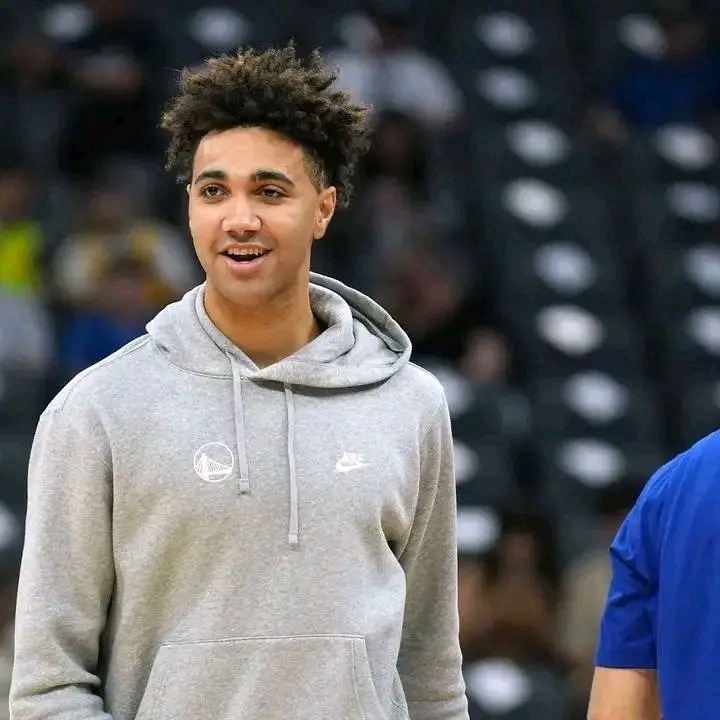
No. 1-ranked basketball recruit has just stunned the college basketball world by committing
No. 1-Ranked Basketball Recruit Stuns College Basketball World, Commits to LSU Women’s Basketball—Snubbing Powerhouses Tennessee and Florida
The college basketball landscape was sent into a frenzy this week as the nation’s top-ranked recruit, five-star phenom Aaliyah Carter, shocked the sports world by announcing her commitment to LSU’s women’s basketball program. In a decision that few saw coming, the 6’3” wing from Dallas, Texas, chose the Tigers over perennial powerhouses Tennessee and Florida, instantly transforming LSU’s recruiting class into one of the most formidable in the country. The move not only solidifies head coach Kim Mulkey’s rapidly ascending program but also sends a clear message: LSU is now a destination for elite talent, ready to compete for championships.
Carter’s recruitment had been one of the most closely followed in recent memory. A generational talent with the size of a forward, the handles of a guard, and the shooting touch of a specialist, she had been pursued by every top program in the nation since her freshman year of high school. Tennessee, with its storied history under Pat Summitt and its relentless pursuit of dominance under Kellie Harper, was long considered the favorite. Florida, with its up-tempo system and strong NIL opportunities, was also heavily in the mix. Yet when Carter sat down for her live commitment announcement, flanked by family and coaches, she reached for the purple and gold LSU hat—a moment that sent shockwaves through the sport.
So why LSU? In an exclusive interview following her decision, Carter broke down her thought process. “It wasn’t about the biggest name or the most trophies,” she said. “It was about where I felt I could grow the most as a player and a person. Coach Mulkey and her staff made me feel like I was their top priority from day one. They didn’t just talk about winning—they showed me how I would be the centerpiece of a championship team.” Indeed, Mulkey’s track record speaks for itself. Since taking over at LSU, she has revitalized the program, leading the Tigers to deep tournament runs while developing players into WNBA prospects. Her fiery, competitive demeanor resonates with elite recruits, and Carter’s commitment is proof that LSU is no longer just an up-and-comer—it’s a bona fide contender.
Another major factor in Carter’s decision was the culture Mulkey has built. “When I visited, it wasn’t just about basketball,” Carter explained. “The team felt like a family. The players were close, the coaches were invested, and the fans were incredible. Baton Rouge loves women’s basketball, and I wanted to be part of something special.” LSU’s recent success in securing high-profile transfers and recruits has created a snowball effect, with top players now seeing the program as a place where they can compete for titles while playing in one of the most passionate environments in the sport.
The ripple effects of Carter’s commitment are immense. Analysts immediately moved LSU into the preseason top-five conversation, with some even projecting the Tigers as the team to beat in the SEC. Her versatility allows her to play multiple positions, and her ability to score at all three levels makes her nearly unguardable at the collegiate level. Defensively, her length and athleticism will make LSU a nightmare for opponents, and her presence alone will open up opportunities for her teammates. With Carter leading the charge, the Tigers now have the star power to go toe-to-toe with South Carolina, UConn, and Stanford.
But Carter’s decision isn’t just about basketball—it’s also a sign of the shifting dynamics in recruiting. In the NIL era, players are increasingly looking beyond tradition and considering factors like branding opportunities, coaching relationships, and team fit. LSU’s strong NIL collective, combined with Mulkey’s ability to develop pros, made the Tigers an attractive option despite not having the same historical pedigree as some of their rivals. “I thought about my future on and off the court,” Carter said. “LSU showed me how they could help me build my brand while competing at the highest level.”
For Tennessee and Florida, the loss is a significant blow. The Lady Vols, in particular, had invested heavily in Carter, hoping she would be the next great in their lineage of superstar wings. Florida, meanwhile, had pitched her on being the face of their resurgence. Yet in the end, neither could match LSU’s combination of coaching, culture, and vision.
As for what’s next, Carter is already looking ahead. “I’m not coming just to be good—I’m coming to win a national championship,” she declared. With her talent and Mulkey’s coaching, that goal suddenly seems within reach. LSU fans are already dreaming of parades down Victory Hill, and opponents are scrambling to adjust their game plans. One thing is certain: women’s college basketball just got a lot more interesting.
Aaliyah Carter’s commitment isn’t just a recruiting win—it’s a statement. LSU is here to stay, and the rest of the country had better take notice.






